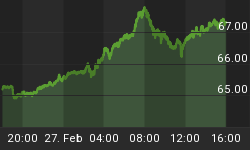Bloomberg TV's Erik Schatzker spoke to World Bank President Robert Zoellick this morning about the economic woes facing Italy. Zoellick said that Germany and other European nations can do more for Italy, and that austerity is a "loaded word."
On whether Italy is getting enough support:
"There's been a start. I think the policies of the European Central Bank - giving a little bit more liquidity - has been a big help. One of this focuses last year of this fiscal pact is, align with what Italy is doing to get the fiscal discipline."
"I think there needs to be something more because we are now moving into the politics of reform, not just the economics of balance sheets. I think for Mario Monti to succeed, he's going to have to show to the Italian public that not only the fiscal reforms, but also the structural reforms to build competitiveness, are working. Right now our forecast is that Italy doesn't grow. So I think Germany and others who have a big stake in Italy's success need to look at ways or they can be frugal but show the right path."
"Austerity becomes a loaded word. Everybody does have to fiscal discipline, there's clearly been too much debt and spending. [But] it's also going to be a question of the competitiveness reforms. However, I and others have suggested things like a partial use of Eurobonds for some of the stock of debt if countries make reforms. Others have talked about way to provide investment and financial resources. But if we're sitting here six months from now and the Italian public says enough is enough, what happens to Europe? It's very bad."
On whether Germany attitudes are changing:
"I'm sympathetic to the Germans because they financed a lot of this. They don't want to just pour money down a hole, everybody always comes to them to seek a bailout."
"What Chancellor Merkel did at the end of last year was start to show the German people there's a bigger plan here, with the focus on the fiscal pact. So it relates to something more important for Europe, and that's something Germans can support.
"I think they need to go to the next step. When you listen closely to what Chancellor Merkel says, she doesn't rule out some of these possibilities. She wants the countries like Italy and Spain to take the steps that they need to take. What I would suggest however, is to be more a little forthright to show, if you do this, you get these benefits because that would help the politics."
On whether the Greek debt talks will lead to a stabile solution:
"I know there is a lot of attention on Greece because it 's the heart of the market discussion. But it is a very small percentage of the EU GDP."
"I think the reality is, there needs to be some sharing of the load here, that's what you have with some of the private bank discussions about cutting some of their value. As the IMF has talked about, there ought to be other support from the European Union to come in other than the IMF. Basically, it keeps the Greece on life support while it makes reforms. And the question is, will it makes those reforms? And if it doesn't, there will be consequences for its future."
On the economic crisis:
"We're now getting into the fourth year of the crisis. Now, we should be alert to things that people might have missed coming around in 2007 or 2008. We have no excuse for overlooking the dangers. Second, people are weary. There's anxiety. There's fear. This can feed into populism or protectionism, some very dangerous courses."
"What I'm trying to do is...come up with some practical solutions. Bankers are often responding to immediate markets. I think what you'd have to agree, if you're dealing with today's issues you have to be looking a little bit ahead and that's what I've been trying to do in the case of Italy and Spain."
On his term being up in June:
"My term doesn't end until June 30. I'll be talking to the board about my plans in the future. In an institution like the World Bank, there's a process whether for renewal or a new president, and that will kick in."















